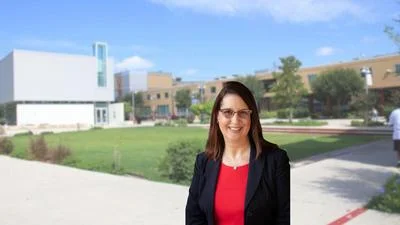Highlights from our interview with Charles Blain, President of Urban Reform and the Urban Reform Institute.
Q: Lone Star Standard
How has the public information request process worked for you?
A: Charles Blain
You would hope. What I have found, and I am speaking for me and not anybody else, when I request something and they send it to me immediately, it’s because whatever I am requesting is inconsequential. Whenever it’s anything that’s consequential, they don’t really want out, they usually make me jump through hurdles.
Generally speaking, we should simply be able to request public information from any government entity because that’s what the Texas Public Information act allows you to do, and they should release it. Of course, things like Social Security numbers and driver’s license numbers and things like that should be protected, but they should be able to just release the information you request. More often than not, at least in my case, they kind of make me jump through different hurdles.
Some entities I’ll request from are different. I often make requests from the city of Houston. And, I’ve recently started requesting from an entity called Metro, which is our metropolitan transit organization. I used to be able to just send an email to the department and request information. And, technically, under the state law, I can still do that. But, now, they created this portal that you have to create an account for, log into, and then submit your request there. Whereas with Metro, I use email to request information. And other cities are increasingly using these portals to manage public information requests. Often it is the same portal and the same website, except if you are requesting in Houston or San Antonio or Austin, you can’t use the same login information. I have to create a new account every time I want to send a request.
Q: Lone Star Standard
How much do you get charged for public information requests?
A: Charles Blain
More than a few. It is also arbitrary because they don’t have to talk to you about the process. I’ve had requests where they requested documents for time spans of years, and they’ve turned them over without an issue. But then I’ve had times where I requested one document and they literally have charged me like 15 cents. You’re really going to charge me 15 cents for this? You can’t just give it to me.
They say it is their policy not to just give information. But, then I’ve submitted things to the city of Houston where I’ve gotten bills for $5,000, $6,000, $7,000. These are public information requests for documents on a computer somewhere. It’s not like they’re going down in a basement and peering through file cabinets dating back to 1875. They are doing a computer search for these documents, and yet, they still charge you for the labor fees and all these other things. But it is all really arbitrary because they don’t necessarily have to do all of that.
Q: Lone Star Standard
What has happened to the Texas Public Information Act which was supposed to give the public easy access to public information?
A: Charles Blain
For starters, there needs to be two things. The long term answer would be a cultural shift in local government where they understand that this information is the public’s information and there should be easy access to it. But that may never happen. In the shorter term, the state needs to tighten up the Texas Public Information Act, because that has been riddled with holes, and it allows these governmental entities to exploit exceptions.
Over the years, one of the things that I found out is when you submit a request and the local government can contest the request with the Attorney General. If there’s not already an AG opinion in the same vein, the attorney general will issue a new opinion on whether or not that information is subject to public disclosure. And, when they say it isn’t, they give the reason why under state law. And if you look, you can go to the website for the Attorney General’s office and you can see all the opinions released by Attorney General Paxton, Attorney General Greg Abbott, Attorney General John Cornyn.
Over the years, all these opinions have essentially rendered the law useless because they’re giving all of these exceptions to the law giving reasons why a government doesn’t have to release public information. So, what happens a lot of times now for me is when I request something, they’ll just go pull up an old opinion and be like, this opinion was issued on the same issue and, so, you don’t have to release the public information. It makes the law pointless.
Charles is the President of Urban Reform and Urban Reform Institute, focusing on free market solutions to urban issues and creating opportunity for all in America’s metropolitan areas. Charles has been published in the Wall Street Journal, Forbes, the Houston Chronicle, the Hill, Wired, and other publications. He is a Fox 26 Houston (KRIV) regular political commentator and weekly panelist on Sunday talk show, What’s Your Point. He is also a regular guest speaking about local issues on I Heart Radio’s Pursuit of Happiness, The Michael Berry Show, and Houston’s Morning News w/ Jimmy Barrett & Shara Fryer.
This interview transcript has been edited for length and clarity.
Listen to the full discussion here: https://texas-talks.simplecast.com/episodes/ep-19-charles-blain.









